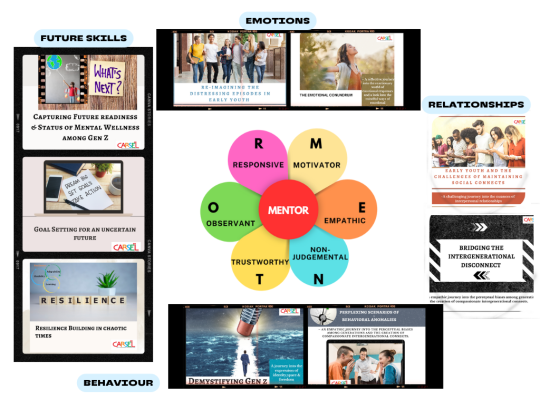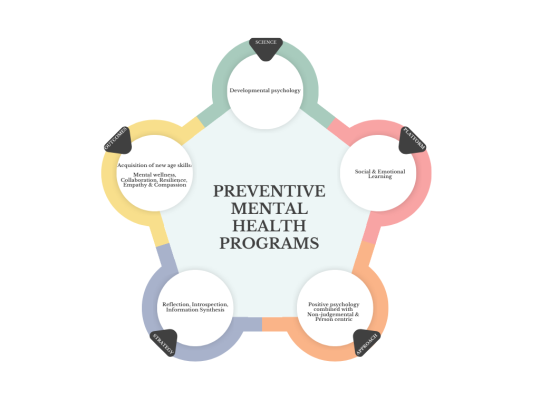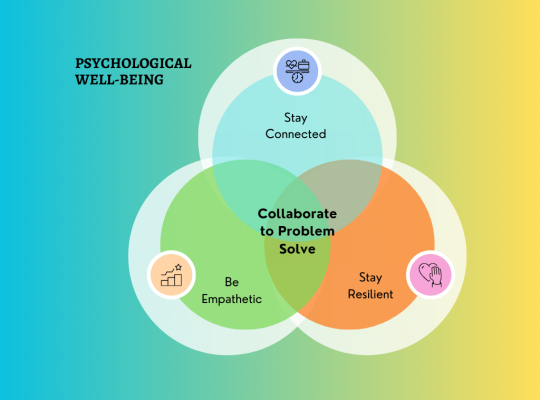The period of individual brilliance in human evolutionary history is almost over; its collective efforts that matter. For collective efforts to succeed we need more emotionally literate and socially connected communities.
Significance of Socio-Emotional Learning (SEL)
In this era of globalization and digitalization; the cultural, regional ethnic, linguistic, and national boundaries blur and merge. As humanity forays into unheard domains and unfathomable technological revolution, the need for emotional engagement and social connectedness increases many fold. To be emotionally engaged we need to create emotionally literate people. Emotionally literate communities are socially more connected.
An emotionally literate person is able to identify, understand, use and manage emotions in self and others and also feel empathic. Emotional literacy helps in Identifying emotions in self and others, understanding the causes of those emotions, regulating the aftermath of those emotions, expressing those emotions, using and regulating those emotions, empathizing with others.
SEL-Socio Emotional Learning is the process through which children as well as adults acquire and apply the knowledge, attitudes and skills necessary to recognize, understand, express & manage their emotions, create and maintain positive relationships, feel and show empathy and become equipped to take responsible decisions.
Man is a social being. He always seeks social and emotional validation. A person is said to be emotionally validated when his emotions are interpreted correctly by people around him and is able to accept his own emotions and also is able to generate empathic reactions from others.By accepting your emotions, you are accepting the truth of your situation (i.e., it is snowing). This acceptance means that you don’t have to spend your energy pushing the emotion away. Instead, once the emotion is acknowledged, you can then turn to pursue the behaviors that are aligned with your goals and values. Emotional acceptance refers to the willingness and ability to accept and experience the emotion, to acknowledge and absorb it. A person is socially validated when he is socially accepted, is able to connect socially and feel empathic to the social scenes around him.Emotions can be expressed either verbally or through body languages. Emotional expression allows us to vent out the emotional feel without having negative impacts.
Emotional validation is distinguished from emotional invalidation, in which another person’s emotional experiences are rejected, ignored, or judged.
SEL approach and what it does…
- It stresses on collective efforts for problem solutions.
- Helps establish ,flourishing communities
- Multifaceted approach
- Helps garner opinions of all parties involved
- Helps create emotionally engaged and socially connected communities.
- Promote dynamic interpersonal relationships.
- Creates positive behavioral outcomes
- Enhances emotional, social and cognitive skills.
- Improves academic engagement and performance.
- Evinces greater student interest ,enjoyment and involvement in academic activities
- Helps in creating and maintaining collaborative learning environments.
- Leads to pro social behavior
- Helps in active decision making.
- Helps maintain quality relationships in the community
- Improves the wellbeing of the individual and the society.
Constructs of SEL
Self-awareness: The abilities to understand one’s own emotions, thoughts, and values and how they influence behavior across contexts. This includes capacities to recognize one’s strengths and limitations with a well-grounded sense of confidence and purpose.
Self-management: The abilities to manage one’s emotions, thoughts, and behaviors effectively in different situations and to achieve goals and aspirations. This includes the capacities to delay gratification, manage stress, and feel motivation and agency to accomplish personal and collective goals.
Social awareness: The abilities to understand the perspectives of and empathize with others, including those from diverse backgrounds, cultures, and contexts. This includes the capacities to feel compassion for others, understand broader historical and social norms for behavior in different settings, and recognize family, school, and community resources and supports.
Relationship skills: The abilities to establish and maintain healthy and supportive relationships and to effectively navigate settings with diverse individuals and groups. This includes the capacities to communicate clearly, listen actively, cooperate, work collaboratively to problem solve and negotiate conflict constructively, navigate settings with differing social and cultural demands and opportunities, provide leadership, and seek or offer help when needed.
Responsible decision-making: The abilities to make caring and constructive choices about personal behavior and social interactions across diverse situations. This includes the capacities to consider ethical standards and safety concerns, and to evaluate the benefits and consequences of various actions for personal, social, and collective well-being.
Empathy and its importance
Empathy is the capacity to experience another person’s emotions from their perspective. Empathy helps in pro-social behavior and protects relationships.
The main two characteristics of empathy are our ability to identify and understand other people’s emotions and the ability to mirror what that person is feeling, or just feeling stressed when we detect another’s fear or anxiety.



